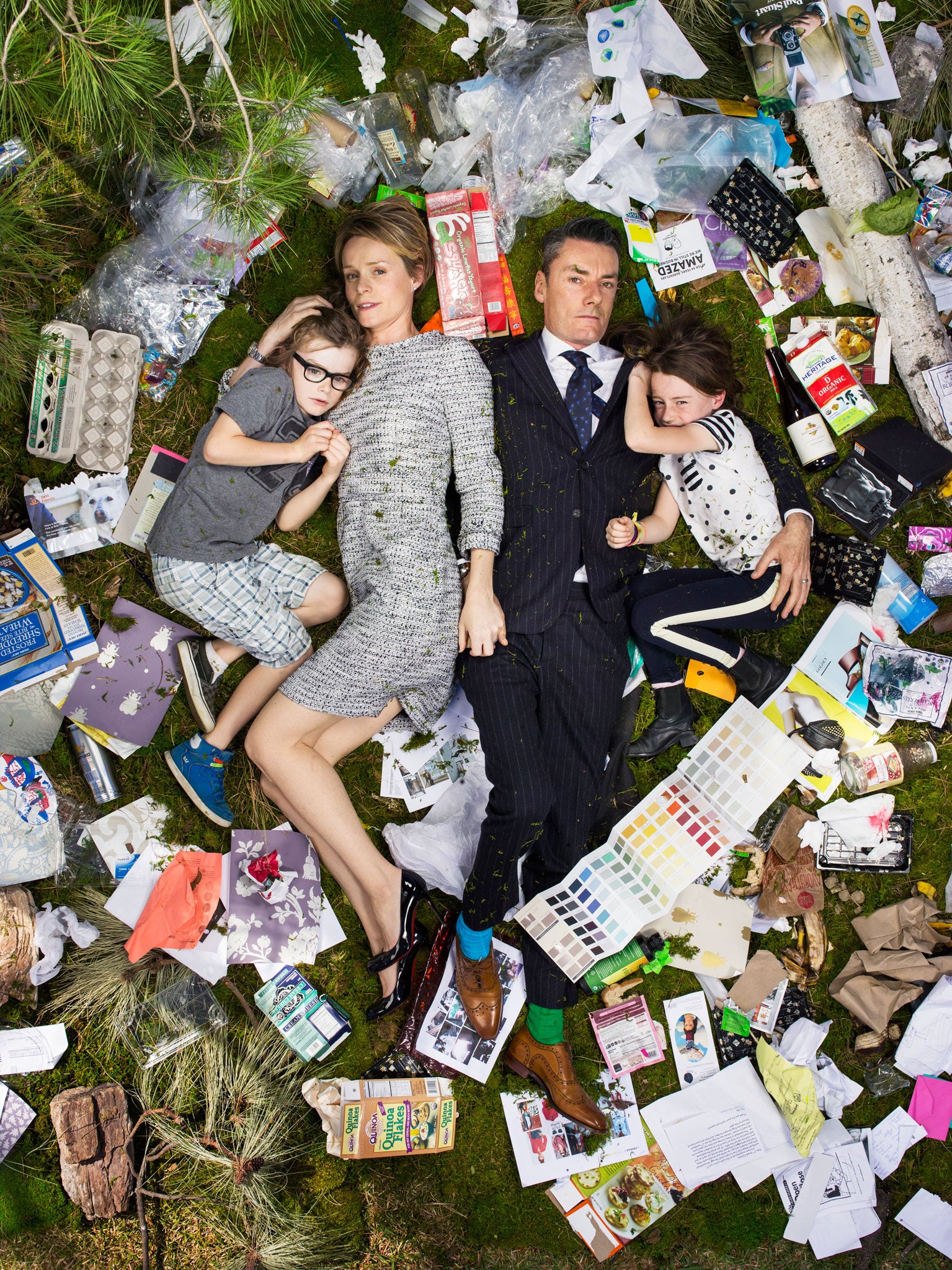Gregg Segal's 7 Days of Garbage project highlights how much Americans consume

Your support helps us to tell the story
From reproductive rights to climate change to Big Tech, The Independent is on the ground when the story is developing. Whether it's investigating the financials of Elon Musk's pro-Trump PAC or producing our latest documentary, 'The A Word', which shines a light on the American women fighting for reproductive rights, we know how important it is to parse out the facts from the messaging.
At such a critical moment in US history, we need reporters on the ground. Your donation allows us to keep sending journalists to speak to both sides of the story.
The Independent is trusted by Americans across the entire political spectrum. And unlike many other quality news outlets, we choose not to lock Americans out of our reporting and analysis with paywalls. We believe quality journalism should be available to everyone, paid for by those who can afford it.
Your support makes all the difference.Most of us feel guilty about the amount of rubbish we create – but what if you were faced with your entire weekly output, and were then made to lie in it?
After learning that the average American produces about 4lb of garbage every day (double the amount generated in 1960), Gregg Segal set out to create a project that highlighted these worrying statistics.
"I'm not an environmental activist, though I am concerned not only with how much we consume and throw away, but by how blind we seem to be to all the waste," says the California-based photographer.
In the garden of his Los Angeles home, Segal created three different settings – water, beach and forest – and invited friends, family and neighbours to save all their rubbish for one week before photographing them in one of the settings, surrounded by their pizza boxes, cereal cartons and wine bottles.
"Some people volunteered because they thought that the project was worthwhile," he says. Others endured the indignity of laying in their own residue for payment.
It was important to Segal to highlight the universality of the problem, and a range of socio-economic backgrounds, ages and ethnicities are represented. "I photographed myself and my family too, because my family is part of the problem."
The ongoing project, called "7 Days of Garbage", is one he hopes to be able to expand. "I plan to continue the series, creating other environments, or shooting on location if necessary. The point is to highlight how pervasive garbage is; no corner of the earth is untouched."
For more: greggsegal.com
Join our commenting forum
Join thought-provoking conversations, follow other Independent readers and see their replies
Comments